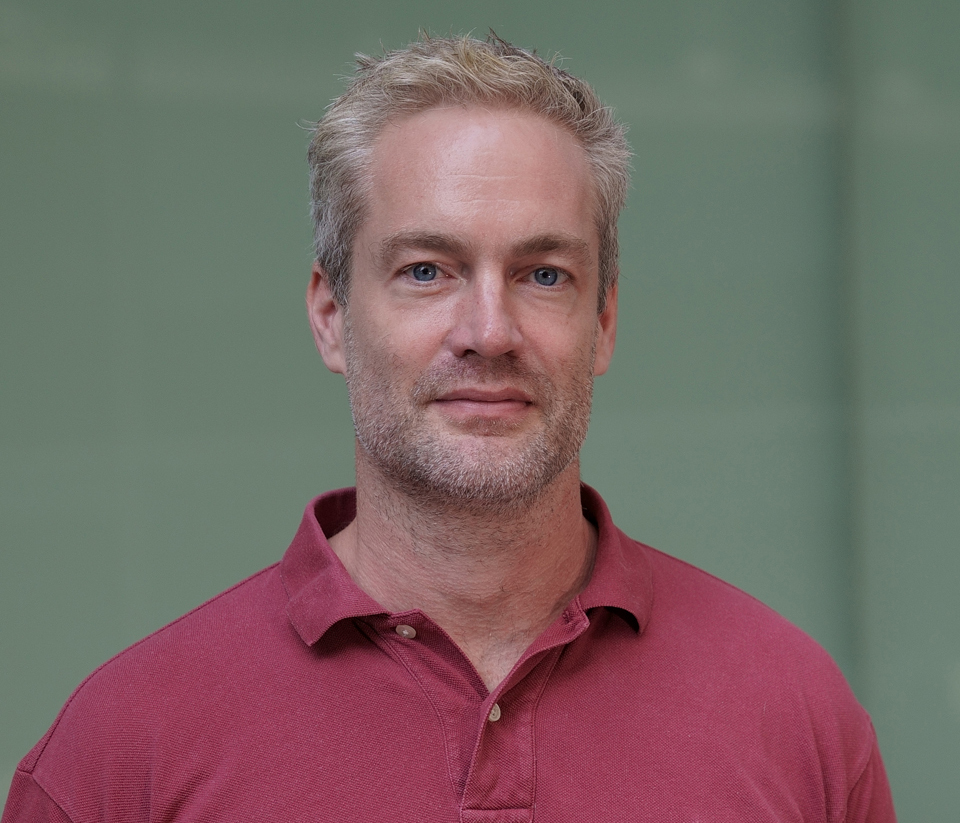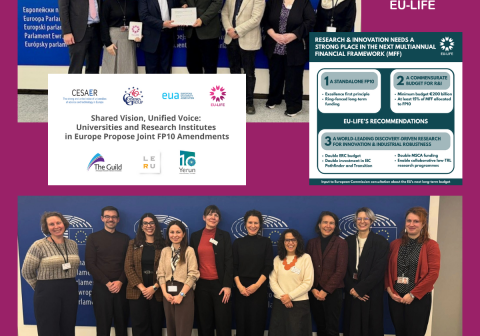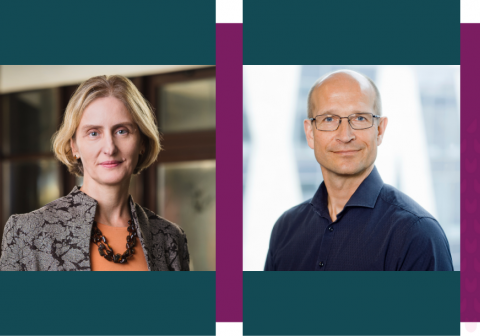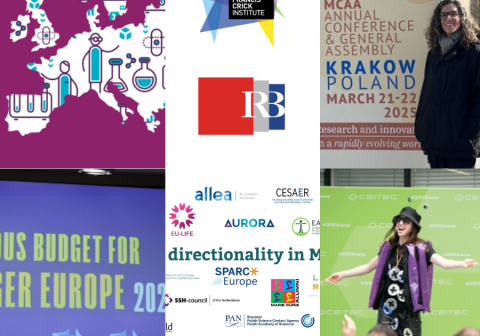The crucial role of research managers: an interview with Jonas Krebs
Jonas Krebs is the Coordinator of the Strategic Projects Area at CRG. He studied Biochemistry and received his PhD in Molecular Plant Biology at the University of Potsdam. Afterwards, he worked in several roles related to project and research management, internationalization and professional networking. In 2014, he obtained the EU-Liaison Officer Research certificate from the EU Bureau of the German Federal Ministry of Education and Research.

You currently work as the Coordinator of the Strategic Projects Area at CRG. Could you tell us a bit about your role? What do you enjoy most?
In my role as the Coordinator of the Strategic Projects Area at CRG, I am involved in overseeing key projects and initiatives within our Strategy and Funding (SaF) team. My job includes finding new funding opportunities, developing project proposals, and coordinating various institutional collaborations and activities to ensure they run smoothly. I also manage a team of scientific project managers, supporting them in their daily work to meet our project goals and achieve impact.
What I enjoy most about my role is connecting people from different backgrounds and countries, sparking new ideas and exciting projects. For example, we have started partnerships with researchers in design and gamification, which bring a lot of inspiration and innovative approaches to our work.
I also love exploring and implementing new project management tools. Currently, our team is focusing on how AI can improve our project management processes, which is an exciting development.
You are part of the team that founded the MCAA Research Management Working Group (RMWG). Why did you decide to come together as a working group? What is its main purpose?
The idea to create this pan-European working group arose during the COVID-19 pandemic, when we were all forced to discover new ways of implementing our project plans virtually. With another MSCA project manager in Israel, Eitan Segev, I organized in 2020 and 2021 a couple of online courses for the European Training Networks we managed. Our discussions and mutual advice helped us a lot tackle the challenges we faced in our projects during the pandemic. We therefore decided to create a core group of MSCA Project Managers in life sciences by reaching out to project managers we already knew and had very fruitful meetings.
Shortly after, we got in touch with Hakim Ferria, who had already created a national network of project managers in France. We joined our efforts to a broader European level, and in 2022, we officially transformed our informal network into the official MCAA Research Management Working Group (RMWG).
It addresses a clear need in the Marie Skłodowska-Curie Actions (MSCA) project management community. Many project managers start without much experience and lack peer-to-peer networks to support them, especially in the early stages of a project.
Our main goal with the working group is to create a supportive space where both, new and experienced research and project managers can share ideas, discuss challenges, and help each other. They can exchange tips and best practices informally, making it easier to manage MSCA projects and improve their overall quality. We also encourage joint activities across different networks to build a lasting support platform. Additionally, we want to shine a light on the crucial role of project managers, who often work behind the scenes to ensure research success.
Why is important that MCAA opened also to research managers? Do you think other founding bodies and alumni associations should follow their lead?
The decision of the MCAA to open its membership to research managers was a crucial step in recognizing the essential role they play in the success of Marie Skłodowska-Curie Actions (MSCA) projects. Research managers are often the backbone of these collaborative projects, ensuring smooth coordination and implementation, and their contributions are vital to the overall success and impact of the projects.
They ensure that everything runs smoothly, allowing scientists to focus on their research. By formally including research managers in the MCAA, the association acknowledged their importance and provided them with a platform to share experiences, access resources, and build a professional network.
When Eitan, Hakim, and I formed the network of MSCA project managers, we were already MCAA members and had informal exchanges with the MCAA board. We were thrilled to see that the MCAA was genuinely interested in our network of project managers and supported our integration into their organization, first as an interest group and then as an official working group. This inclusion allowed us to benefit from the excellent MCAA infrastructure and extensive networks. I would like to heartfully thank Fernanda Bajanca (former MCAA Chair), Mostafa Moonir Shawrav (MCAA Executive Director) and Gledson Emidio (former MCAA Vice-Chair) for all their trust and support from the very beginning and for recognizing the potential impact of this group.
I believe other funding bodies and alumni associations should follow MCAA’s lead. By opening their membership to research managers, they can foster a more inclusive and supportive environment for all professionals involved in research projects. This not only helps individual managers grow and succeed but also enhances the overall quality and impact of the research projects they support. Embracing research managers as integral members of the research community is a step forward in promoting effective collaboration and ensuring the success of future projects.
Research management is part of the priorities of the European Research Area (ERA) Policy Agenda, with Action 17 focused on the development of research management capacity at institutions. Do you think this is the start of a new era in research management? What would you say needs to change?
I am glad to see that there is currently a lot of momentum for research managers, not only through the discussions within Action 17 of the European Research Area (ERA) Policy Agenda, but also through EU-funded projects like RM Roadmap and CARDEA. These initiatives bring research managers into the spotlight, recognizing their essential role in the success of research projects.
I am excited to participate in the ad-hoc workshops organized within Action 17 to represent the MCAA, contributing to the ongoing dialogue about the future of research management. This certainly feels like the start of a new era in research management. For too long, research managers have been the unsung heroes behind successful research projects, handling everything from administrative tasks to communication and quality assurance. Now, with these new initiatives, there is a joint effort to professionalize the role, provide better training, and build a strong community of practice across Europe. Despite these important initiatives, to fully embrace this new era, several changes still need to happen at various levels:
- Clear Career Paths: Establishing well-defined career paths for research managers is essential. This includes creating detailed job descriptions, career development plans, and appraisal systems to provide managers with a clear understanding of their roles and opportunities for advancement.
- Dedicated Funding: Allocating specific budgets for research management positions within projects ensures that managers have the resources they need to perform their roles effectively and are recognized as essential contributors to the project's success.
- Training and Development: Offering accessible and high-quality training programs is vital. These programs should cover both technical aspects of research management and soft skills required to navigate complex project environments. Continuous professional development opportunities will help managers stay updated with the latest practices and tools.
- Institutional Support: Research managers need strong support from their institutions. This includes stable employment contracts, recognition of their contributions, and involvement in decision-making processes. Institutions should promote a culture that values the role of research managers and recognizes their impact on project outcomes.
- Enhanced Networking: Building robust networks for research managers to share best practices, collaborate on projects, and provide peer support is essential. These networks should be supported at both national and European levels to ensure wide-reaching benefits.
The MCAA RMWG recently organised the ‘World Café Workshop on the Evolving Role of Project Managers’, co-chaired with EU-LIFE, as a satellite event of the MSCA 2023 Conference. What is the added value and impact of research managers within MSCA Actions?
The ‘World Café Workshop on the Evolving Role of Project Managers’ provided a dynamic and interactive space for research managers, policymakers, the European Commission, national contact points and other stakeholders to discuss the evolving role of project managers in MSCA projects.
We organized it in a world café format, which facilitated open and participatory discussions. Participants were divided into groups and rotated through various discussion tables, each focusing on different aspects of project management within MSCA projects. The key discussion topics included the added value of project managers, the challenges they face, and strategies for better support and recognition.
It was important for us to highlight through this workshop that project managers are crucial in MSCA projects, ensuring smooth coordination and implementation. They handle administrative, financial, and legal matters, facilitate communication and collaboration among partners, and ensure compliance with regulatory and ethical standards. By managing these aspects effectively, research managers allow scientists to focus on their research, thereby increasing the overall success and impact of MSCA projects. Their work ensures that projects are well-organized, on budget, and meet their objectives, making them more impactful and accessible to all stakeholders, including scientists, funders, and the public.
The workshop outcomes and key recommendations are about to be published. Stay tuned!



